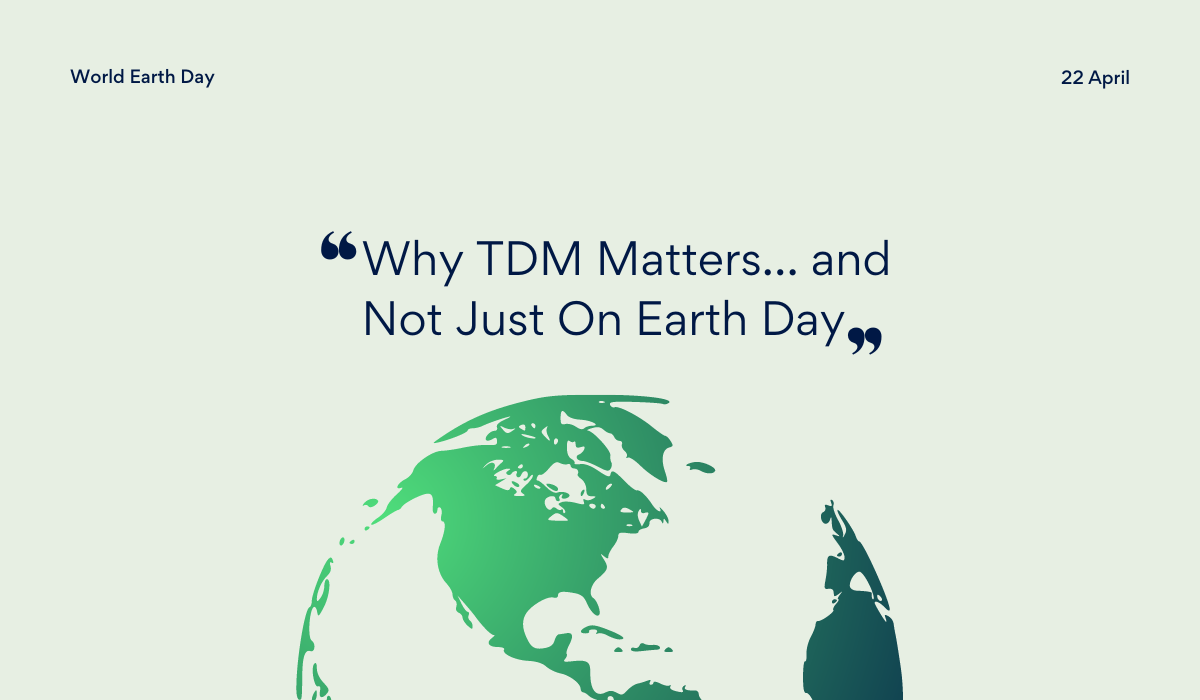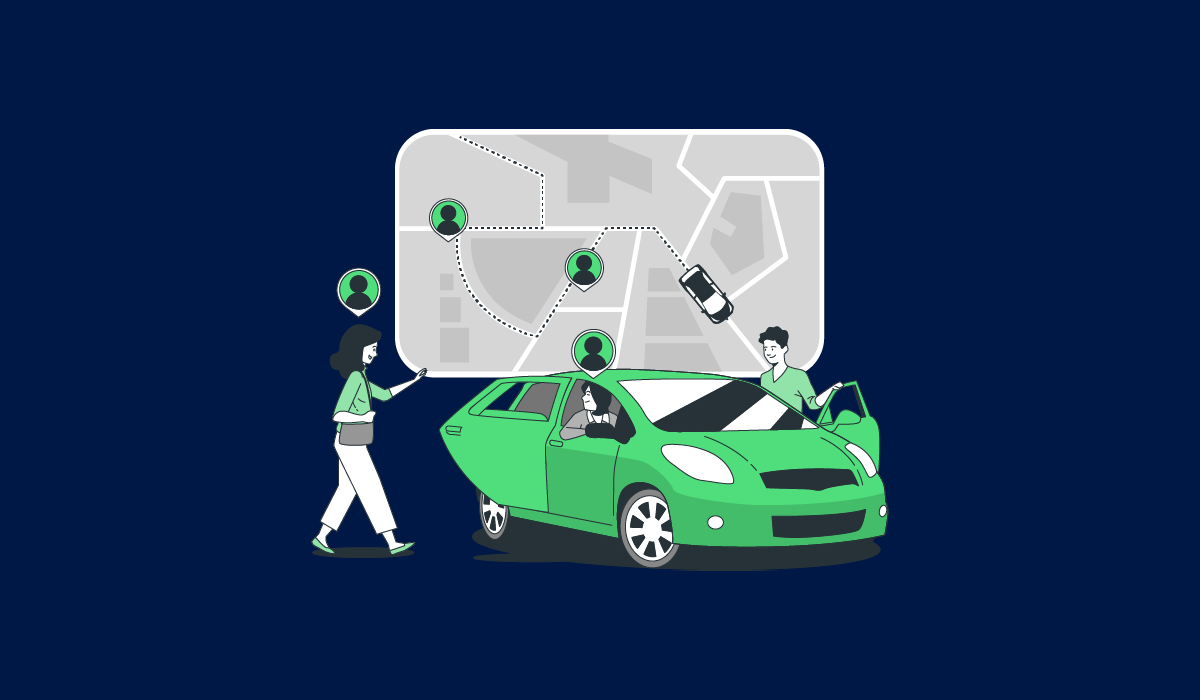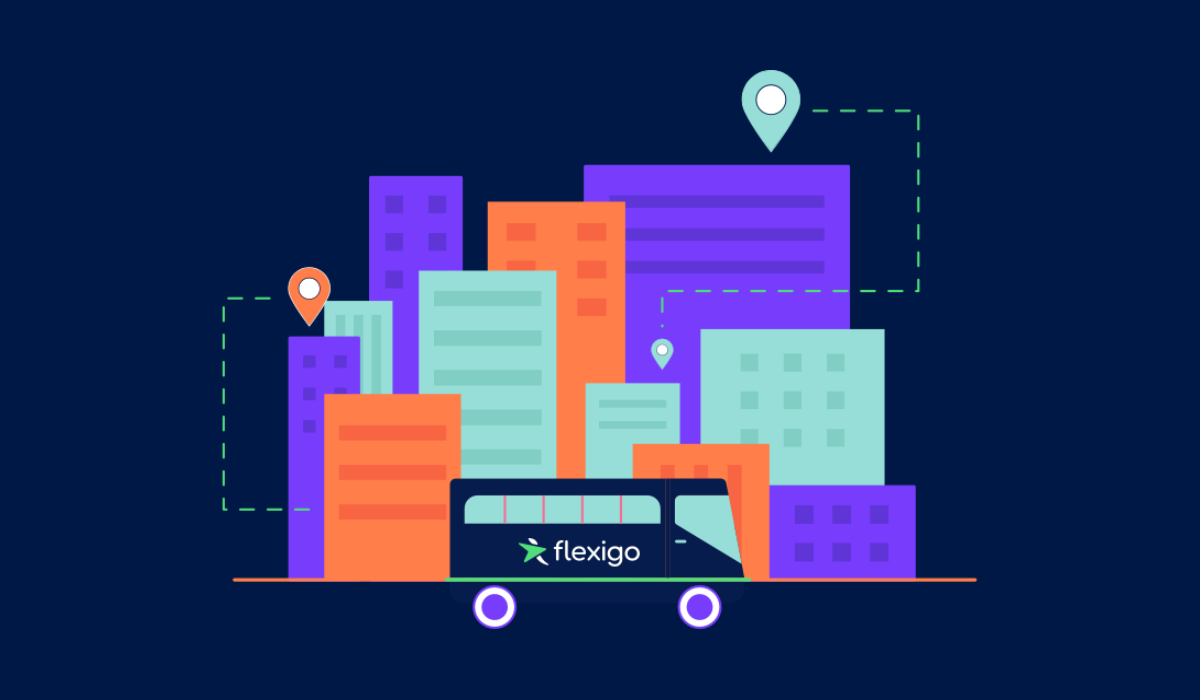As we commemorate World Earth Day, it's crucial to remember that this isn't just a one-day event. It's a reminder of the ongoing responsibility we have to prioritize sustainability every day of the year. As such, the spotlight is on the importance of Transportation Demand Management (TDM) strategies beyond just this one day. TDM isn't merely about reducing traffic congestion or carbon emissions; it's about creating sustainable, efficient, and equitable transportation systems that benefit organizations, employees, communities, and the environment alike. From fixed route shuttles to dynamic shuttles, vanpools, carpools, public transport connectivity, active transportation, and shared ride programs, TDM solutions have evolved, leveraging advanced technology to make development, implementation, and utilization easier than ever before.
Why It Matters To You and Your Business
Employers stand at the forefront of driving change through TDM strategies. By embracing shared ride and active transportation solutions, businesses not only contribute to a healthier environment but also foster a more engaged workforce while advancing their Environmental, Social, and Governance (ESG) goals. The link between a company's financial success, employee engagement, and ESG initiatives is undeniable. Implementing a smart commute strategy powered by TDM technologies yields significant benefits across HR, ESG, and financial outcomes. Let’s take a look some of the most popular services to understand them on a deeper level.
Carpooling and Vanpooling Programs
- Organization: Reduces parking demand, lowering infrastructure costs.
- Employees: Saves money on fuel and maintenance, fosters social connections, reduces stress.
- Communities: Eases traffic congestion, reduces air pollution, promotes carpool lanes and infrastructure.
- Environment: Decreases greenhouse gas emissions, mitigates climate change, improves air quality.
Fixed Route Shuttles
- Organization: Provides reliable transportation for employees, particularly in areas with limited public transit.
- Employees: Offers a convenient commuting option, reduces reliance on personal vehicles.
- Communities: Enhances accessibility, reduces individual vehicle trips, supports local businesses.
- Environment: Lowers carbon footprint compared to individual car trips, decreases traffic congestion.
Dynamic Shuttles and On-Demand Services
- Organization: Increases flexibility, optimizes shuttle routes based on real-time demand, reduces costs.
- Employees: Provides personalized, convenient transportation solutions, saves time.
- Communities: Improves access to transportation in underserved areas, enhances mobility for all residents.
- Environment: Maximizes efficiency, reduces empty vehicle miles, minimizes emissions.
Public Transport Connectivity
- Organization: Encourages the use of public transit, reduces parking demand, supports urban development.
- Employees: Expands commuting options, promotes sustainability, saves money.
- Communities: Strengthens public transit systems, promotes multimodal transportation, reduces congestion.
- Environment: Lowers carbon emissions, preserves natural landscapes, supports sustainable urban planning.
Active Transportation Initiatives (Walking, Biking)
- Organization: Promotes employee health and wellness, reduces absenteeism, fosters a vibrant workplace culture.
- Employees: Improves physical fitness, reduces stress, enhances work-life balance.
- Communities: Creates safer streets, encourages physical activity, reduces reliance on motor vehicles.
- Environment: Eliminates greenhouse gas emissions, reduces pollution, preserves green spaces.
Incentive Programs for Sustainable Commuting
- Organization: Encourages behavior change, boosts employee morale and retention, enhances corporate image.
- Employees: Provides tangible rewards for sustainable commuting behaviors, acknowledges eco-conscious efforts.
- Communities: Promotes sustainable transportation habits, fosters community engagement, supports local initiatives.
- Environment: Motivates individuals to choose greener transportation options, contributes to climate action goals.
Comprehensive Commute Analysis and Reporting Tools
- Organization: Provides valuable insights for optimizing TDM strategies, identifies areas for improvement, tracks progress towards sustainability goals.
- Employees: Offers transparency and accountability in commuting practices, facilitates informed decision-making.
- Communities: Supports evidence-based transportation planning, fosters collaboration between stakeholders, promotes data-driven policy interventions.
- Environment: Enables targeted interventions to reduce transportation-related emissions, monitors the environmental impact of commuting patterns.
By incorporating these TDM offerings into their operations, organizations can realize a myriad of benefits across various facets of their business. From cost savings and improved employee satisfaction to reduced environmental impact and enhanced community well-being, TDM strategies serve as catalysts for positive change. As we embrace the ethos of Earth Day, let's remember that sustainable transportation isn't just a once-a-year endeavor—it's a commitment to building a better future for all.
In this landscape, flexigo emerges as the ideal platform for businesses seeking to maximize the impact of their TDM strategy. flexigo offers a comprehensive suite of TDM technologies, including commute analysis and planning tools, fixed route shuttles, demand-responsive dynamic shuttles, vanpool and carpool coordination, closed-loop carshare, rideshare, and holistic reporting, just to get things started. What sets flexigo apart is not just its advanced and reliable platform, but its ease of use for both employees and TDM administrators.
Once integrated within an organization, flexigo's platform allows easy expansion to the variety of mobility services available to employees while enhancing the quality of existing offerings. Moreover, it delivers tangible benefits such as cost savings, increased employee engagement, improved safety, and reduced greenhouse gas emissions. Additionally, flexigo's unique ability to fractionalize its service between employers ensures data security while aggregating demand across multiple organizations in the same area, thereby making shared commute solutions more accessible than ever before.
As we mark Earth Day, let it serve not as the end target, but as the starting line for what is achievable throughout the year. By embracing TDM solutions powered by platforms like flexigo, businesses can pave the way to a more sustainable future while reaping the rewards of enhanced employee satisfaction, operational efficiency, and environmental stewardship. Together, let's work to change the focus from Earth Day to just Earth and all of its inhabitants.
By Dave Gallon - Managing Director US, flexigo

.png?width=200&name=logo%20(1).png)











